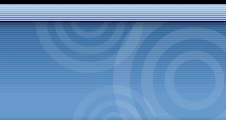|
I recall a line from the movie Amadeus, used a couple of times, as the muscial "elite" in Mozart's time attempted to find some "excuse" to justify their resistance, even though they all obviously were in wonder at the talent Mozart possessed. They came up with "Too many notes".
I recall also, back in 1994, as I was writing about the Church and the Web, I and the educational and sociological revolutions I saw coming, I heard that some people were remarking "Too many links". People were still wanting to read straight-line, point by point presentations. The number of links I used was no more than the usual: linking to works or sites cited, and to things usually footnoted in papers, such as defintions of terms likely unfamiliar to the reader (links provide a way to "digress from the discussion to define or clarify, while leaving the way wide open for others to read on, confident that they can always back up and click the link to explore or clarify. It offers a new style of conversation in that links can provide SOME members of the audeince an opportunity to "stop" the narrative and "ask the author" for a "for instance" (a good candidate for a link that illustrates a point) or for background, all without interrupting the narrative for others who want to continue following the narrative.
Students in class often hesitate to stop the professor by raising their hand and asking a question about something the prof has just said; they don't want to possibly appear as "slower" than the rest of the crowd, or "inconvenience" the other students who may already know the answer, or not care. This can be particularly true in the case of personal stories, as in a testimony. If the teller of the story is apparently "into" the story they are telling, there is a hesitancy to "interrupt" the energy. But it may be crucial to one or another listener's understanding of the story.
In this way, the "telling of our stories" on the Web offer helps to the reception of the story, and so to the message being properly understood. It also opens up the field for a longer period of response (could be days, weeks, months, years, for on the Web, threads persist over time. The conversation cancome alive again via one "late-comer's" observation. (The idea of the thread gives me occasion here to "jump back a few pages, where Weinberger writes about this attribute of online conversation threads: :
on the Web, our conversational threads lie waiting for us. When they're done, they may well be indexed by a search engine where others will find them, perhaps to our embarassment. The Web carries its history with it as a permanent resource that can be toured or mined. ( p.68)
To a people of the Book, such as in the Judeo-Christian tradition, this can be revolutionary. It can impact hermeneutical activity. If there had been a Web in Paul's day, or earlier, in the history of Israel, would the dialogical nature of communication available via Threaded discussion forums or "weblogs-as-epistle" cast a different sense of the "authority" each author placed upon the ideas they were communicating? Would a response from one cause a corresponding clarification or even "backtrack or correction" to the theological idea just communicated, thus calling into question the "timeless truth" status of the assertion?
The time lapse experienced between writer and hearer or reader, and the number of people who have "heard" before has an impact on the sense of authority ascribed to the message. The "many to many" nature of the web and the speed at which a community can respond can call into question the utterances once written on tablets and read before a live audience in a sacred temple space.
9:22:53 AM 
|
|

